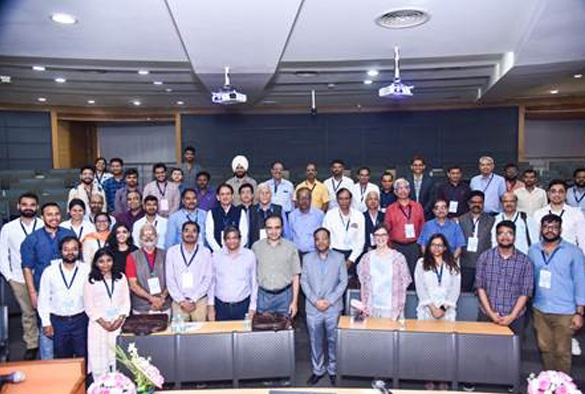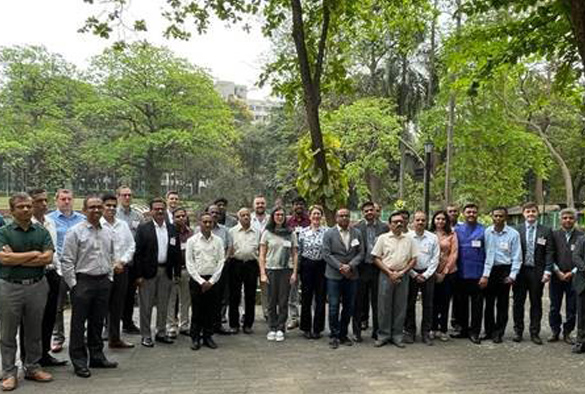UK-India Industry-Academia scoping workshop: Critical Metals and Materials Research and Innovation Opportunities

Dr Elisabetta Mariani from the School of Environmental Sciences at UoL, and who has expertise in the mineralogy and microstructures of Earth materials, was part of an interdisciplinary delegation of UK academics and industry representatives invited to join the UK-India Industry-Academia scoping workshop: Critical Metals and Materials Research and Innovation Opportunities, in Mumbai earlier this month.

Society is built on rock, from which we source critical raw materials. These materials are essential constituents of the infrastructure that must be developed for the production of renewable energy (wind turbines, solar panels, batteries). In addition to this, critical minerals form every part of modern societies, from mobile devices, to cars, to medical equipment. These combined factors necessitate that more critical minerals are produced than ever before.
It is vital that we collaborate with likeminded countries to build supply chain resilience and ensure stable supplies of critical raw materials with appropriate processing capabilities and within the environmental, social and governance (ESG) framework.
This workshop explored research and innovation excellence and challenges in both India and the UK, and aims to identify opportunities for collaborations that will help building relationships between the UK and India research and industry communities for stable and sustainable supplies of critical raw materials.
The workshop was organised by IIT Bombay with the British High Commission of New Delhi and the Royal Society of Chemistry.
The UK delegation comprised experts in Critical Materials (CM) recycling, substitution, exploration and extraction, and supply chain management from five leading UK universities as well as representatives from the Royce Institute, the Centre for Process Innovation and Watercycle Technologies. The India delegation included experts from leading Institutes and Centres in India (IIT Bombay, CSIR-NCL, CSIR-CIMFR, CSIR-IMMT and ARCI) as well as from Hindalco and Reliance Industries.
The opening inaugural session was held by Mr Joshua Bamford, British High Commission New Delhi, Professor Milind Atrey, Dean for Research and Development, IIT Bombay, and Professor M. Ravikanth, Head of the Department of Chemistry, IIT Bombay.
While in Mumbai, Dr Mariani was also invited to attend and present at the India-Australia Joint Workshop on Critical Minerals Research for Sustainable Transition to Green Energy (March 3-4, 2023). This was convened by Professor Sakthi Saravanan Chinnasamy, Department of Earth Sciences, and Professor Harish C. Phuleria (Environmental Science and Engineering Department), IIT Bombay.